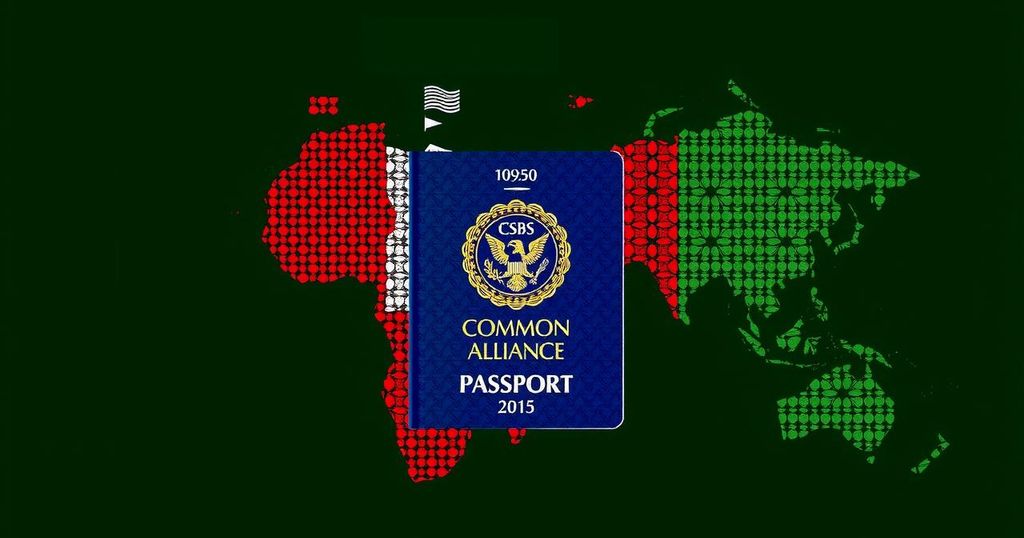Alliance of Sahel States to Launch Common Passport for Enhanced Cooperation
Summary
Mali, Niger, and Burkina Faso’s Alliance of Sahel States plans to launch a common biometric passport to enhance cooperation and facilitate citizen mobility. This announcement coincides with the alliance’s one-year anniversary and follows their withdrawal from ECOWAS. The AES focuses on joint military efforts against terrorism amid regional instability.
The Alliance of Sahel States (AES), composed of the military-led governments of Mali, Niger, and Burkina Faso, announced the initiation of a common biometric passport to strengthen collaboration and enhance security among the member nations. This significant step, revealed by AES Chair and Mali’s junta leader, Colonel Assimi Goita, marks the one-year anniversary of the alliance’s establishment on September 16. The AES aims to facilitate the movement of citizens within its member states, which together are home to approximately 72 million individuals. The AES was formed following these countries’ withdrawal from the Economic Community of West African States (ECOWAS) after tensions escalated due to ECOWAS’s military intervention threats, particularly in response to a coup in Niger. The three nations face considerable security challenges stemming from militant group activities, prompting the formation of a joint military force to address these threats. In a recent summit held in Niamey, the leaders of Mali, Niger, and Burkina Faso celebrated their cooperative successes against terror groups and expressed an openness to dialogue with international and sub-regional partners. Additionally, Goita announced plans for a shared television station to further strengthen their collaboration.
The Alliance of Sahel States was established in September 2022 as a response to regional instability and the influence of militant extremism in the Sahel region. With rising insecurity prompting military coups in the region, Mali, Niger, and Burkina Faso withdrew from ECOWAS and sought to forge a stronger alliance to enhance security and operational effectiveness against terrorist threats. The AES’s establishment reflects a shift in governance and collaboration among these nations, as they share common security concerns and historically have experienced struggles against militant groups.
The introduction of a common biometric passport by the Alliance of Sahel States represents a strategic move towards greater cooperation and security among Mali, Niger, and Burkina Faso, as they face shared challenges from terrorism. The AES continues to emphasize the importance of regional collaboration, expressing readiness to engage with external partners. This initiative not only promotes mobility among citizens but underscores a collective commitment to improving security in the face of persistent threats.
Original Source: www.aa.com.tr








Post Comment